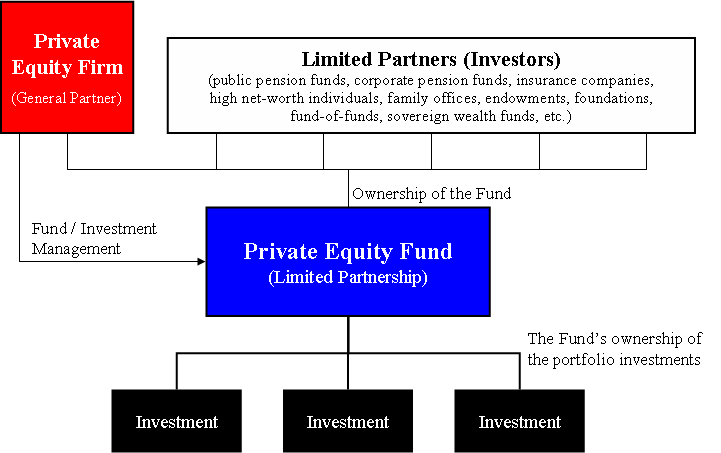Investing in real estate has long been a popular choice for individuals looking to grow their wealth. However, in recent years, there has been a significant rise in the prominence of private equity (PE) real estate firms. These firms are taking the investment world by storm and revolutionizing the way people approach real estate investments.
In this article, we will delve into the world of PE real estate firms, exploring their unique characteristics, key players in the industry, and how individual investors can benefit from partnering with them.
The Rise of PE Real Estate Firms
Private equity (PE) real estate firms have grown increasingly popular due to their flexibility, access to larger deals, and active management practices. These investment vehicles pool capital from high-net-worth individuals and institutional investors to invest in various real estate assets.
PE real estate firms stand out for their ability to adapt quickly to market changes and capitalize on emerging opportunities. They offer investors a level of flexibility in investment strategies that traditional methods often lack.
By pooling resources, these firms can pursue larger deals and build diverse portfolios that may not be available to individual investors. This access gives them a competitive advantage in the market.
Additionally, unlike passive investments like stocks or bonds, PE real estate firms actively manage their assets during the holding period. Through strategic planning and expertise, they aim to enhance performance and generate higher returns.
Overall, the rise of PE real estate firms can be attributed to their flexibility, access to larger deals, and active management practices. As demand for alternative investment options grows, these firms are well-positioned to thrive in the dynamic real estate market.
What Sets PE Real Estate Firms Apart
PE real estate firms have distinct advantages that differentiate them from other forms of real estate investing.
PE real estate firms offer flexibility in investment strategies, allowing them to tailor their approach based on market conditions and specific asset opportunities. This flexibility enables them to employ various strategies such as value-add, opportunistic, or core plus.
By pooling capital from multiple sources, PE real estate firms can pursue larger and more diverse investment opportunities. This provides investors with exposure to various real estate sectors and geographic regions that may not be accessible through individual investments.
Unlike passive real estate investments, PE real estate firms actively manage their assets by implementing strategic initiatives to enhance performance and generate higher returns. They focus on property improvements, repositioning underperforming assets, and negotiating favorable lease agreements.
In summary, the unique characteristics of PE real estate firms include flexible investment strategies, access to larger deals and diverse portfolios, as well as an emphasis on active management and value creation. These factors contribute to their success in navigating the market and delivering favorable outcomes for investors.
Key Players in the PE Real Estate Industry
The PE real estate industry consists of prominent firms like Blackstone Group, Brookfield Asset Management, and Carlyle Group. These companies have made headlines with their successful investments in large-scale projects across various asset classes, consistently delivering attractive returns for investors.
Some specialize in specific sectors such as residential properties, commercial buildings, or hospitality assets, while others focus on development projects or distressed opportunities. Each firm has its own investment criteria and strategy that aligns with its area of expertise, shaping the industry and generating exceptional returns.
The Investment Process: From Sourcing to Exit
Private equity (PE) real estate firms follow a structured investment process that involves sourcing opportunities, conducting due diligence, structuring deals, actively managing assets, and employing exit strategies.
To identify potential investments, PE firms leverage relationships with brokers, analyze data, and seek off-market deals. Thorough due diligence is then conducted to assess financial viability and evaluate risks. Deal terms are negotiated with sellers or developers, and financing options are secured through partnerships or capital reserves.
During the holding period, PE firms actively manage assets by implementing value-enhancing strategies like property upgrades and lease negotiations. Ultimately, their goal is to exit investments at the right time to maximize returns. This can be achieved through selling properties on the open market or refinancing assets for equity extraction.
Understanding this investment process enables potential investors to make informed decisions when partnering with PE real estate firms.
Challenges Faced by PE Real Estate Firms
The world of private equity real estate presents its fair share of challenges that are unique to this industry. These hurdles demand the attention and expertise of firms operating within this space.
Competition for attractive investment opportunities is one of the key challenges faced by PE real estate firms. As more players enter the market, the competition for quality investment opportunities has intensified.
In order to stay ahead, it becomes crucial for these firms to establish a robust network and possess efficient deal-sourcing capabilities. This enables them to identify and seize promising investment prospects before their competitors.
Another significant challenge lies in managing risk within an ever-changing market environment. Real estate markets are highly dynamic and subject to economic cycles as well as regulatory changes. Therefore, PE real estate firms must navigate these uncertainties while effectively managing risk across their portfolios.
This requires constant monitoring, analysis, and adaptation to ensure optimal outcomes for their investments.
Navigating regulatory complexities is yet another challenge that PE real estate firms encounter regularly. Real estate investments are subject to various legal and regulatory frameworks that can vary across jurisdictions. Staying compliant with evolving regulations demands considerable expertise and resources.
Firms must carefully navigate through these complexities to ensure adherence to all relevant laws while maximizing returns on their investments.
How to Invest with PE Real Estate Firms
Investing with private equity (PE) real estate firms requires careful consideration. To ensure a successful partnership, individuals should:
- Research reputable firms: Look for those with a proven track record of successful investments and satisfied investors.
- Understand investment requirements and fees: Different firms have varying minimum investment levels and fee structures. Know the financial commitment before deciding.
- Evaluate investment strategy, alignment of interests, and transparency: Assess the firm’s approach, how they align with investors, and their level of communication and reporting.
By following these steps, individuals can make informed decisions when partnering with PE real estate firms.
The Future of PE Real Estate Firms
Private equity (PE) real estate firms are adapting to changing market dynamics and embracing technology to shape their future. Innovations like artificial intelligence (AI) and blockchain offer opportunities for enhanced investment strategies and asset management.
AI provides valuable insights into market trends, risk analysis, and tenant preferences, optimizing decision-making processes. Blockchain streamlines transactions, improves transparency, and automates property transfers.
Additionally, focusing on sustainability and expanding into international markets allows PE firms to meet evolving tenant demands and diversify their portfolios. The future looks bright as PE real estate firms leverage technology and adapt to industry shifts.
Case Studies: Real-Life Examples of PE Real Estate Success Stories
When it comes to exploring the effectiveness of partnering with private equity (PE) real estate firms, nothing speaks louder than real-life examples. By delving into actual success stories, we can gain valuable insights into the benefits and potential returns associated with this investment option.
One way to demonstrate the power of PE real estate partnerships is by highlighting specific investments and their outcomes. By showcasing successful ventures undertaken by these firms, readers can develop a deeper understanding of the significant returns that can be achieved.
These case studies serve as tangible evidence of how partnering with PE real estate firms can result in substantial financial gains.
However, it’s not just about the numbers. Examining these success stories also provides an opportunity to learn important lessons. By analyzing the factors that contributed to the triumph of these investments, individual investors considering partnering with PE real estate firms can gain valuable insights.
This includes understanding the strategies employed, identifying market trends, and recognizing key decision-making processes that led to success.
By studying these real-life examples, investors can shape their own investment strategies and make informed decisions when entering into partnerships with PE real estate firms. Understanding what worked for others allows them to navigate potential challenges more effectively and increase their chances of achieving similar success.
In summary, through case studies of successful PE real estate investments, we are able to grasp both the potential returns and valuable lessons that come from partnering with these firms.
Real-life examples provide concrete evidence of how such collaborations have yielded positive outcomes, allowing individual investors to make informed choices and maximize their investment opportunities in this lucrative sector.
[lyte id=’rUYufz99PHg’]







